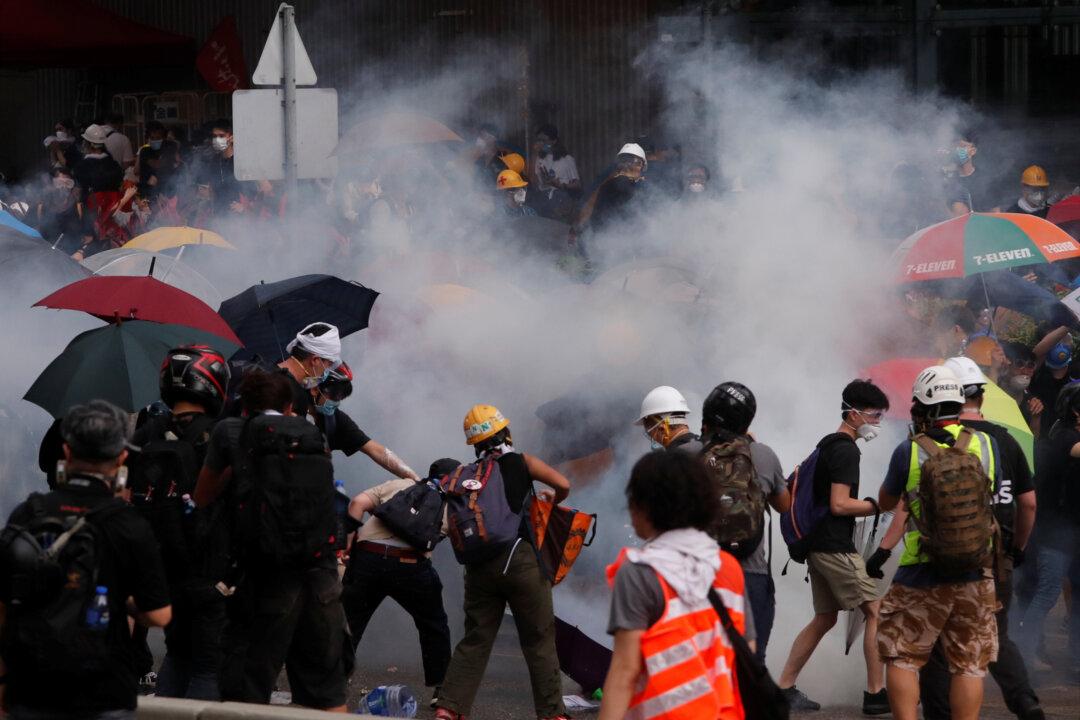HONG KONG—Hong Kong authorities were shutting government offices in the city’s financial district for the rest of the week after a day of violence over an extradition bill that would allow people to be sent to mainland China for trial.
In the morning on June 13, around 20 protesters milled about as a widespread cleanup around the city’s legislature took place.





